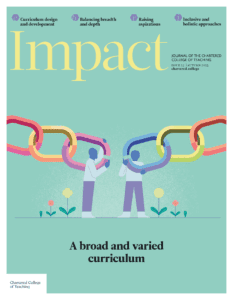JO GRAY, HEAD OF EDUCATION, LEADERSHIP CONSULTANT AND ADVOCATE FOR PLAY-BASED, INCLUSIVE EDUCATION, UK
Play-based learning is a well-established pedagogical approach in the Early Years Foundation Stage (EYFS), fostering cognitive, social and emotional development (Pyle and Danniels, 2017). However, as children transition to Key Stage 1, the focus often shifts towards more structured, formal learning approaches (Fisher, 2022). Despite growing research highlighting the benefits of play beyond the EYFS (Quirk and Pettett, 2021), school leaders continue to face challenges in implementing it within primary education. This study investigated the key factors influencing school leaders’ decisions when considering play-based learning beyond the EYFS. It explored the role of leadership experience, systemic and political pressures, confidence in decision-making, personal beliefs and collaboration. By examining these elements, the study aimed to provide insights into how educational leaders
Join us or sign in now to view the rest of this page
You're viewing this site as a guest, which only allows you to view a limited amount of content.
To view this page and get access to all our resources, join the Chartered College of Teaching (it's free for trainee teachers and half price for ECTs) or log in if you're already a member.











